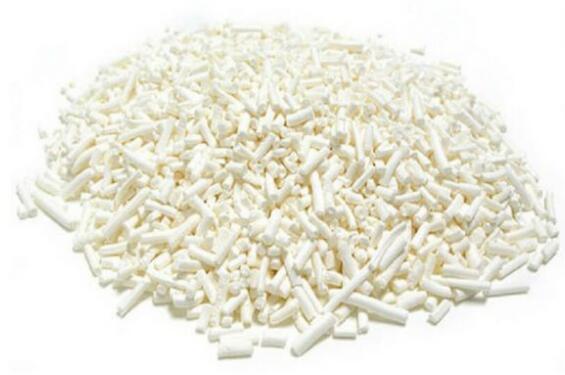Sinoright Blog
Potassium Sorbate
What is Potassium Sorbate?
Potassium sorbate (K-sorbate) is a food preservative commonly used in the baking industry to prevent mold, yeast, and microbes. It is often used in cakes and icings, beverage syrups, cheese, dried fruits, margarine, pie fillings, wine, etc. at concentrations dependent on the specific application.
It is a water soluble ingredient with molecular formula, C6H7KO2. K-sorbate is commercially available in the form of powder or pellets. It is effective at pH up to 6 but drops rapidly at higher levels.

Origin
Potassium sorbate is produced by combining potassium hydroxide and sorbic acid to create a potassium salt. Sorbic acid is naturally present in the lactone form in berries such as rowan berries, Sorbus aucuparia L,1 which it was first isolated from. Some fruits such as cranberries, currants, strawberries naturally contain sorbic acid.
Commercial production
Sorbic acid is commercially produced using the ketene–crotonaldehyde condensation method. It is purified by treating sorbic acid with sodium hydroxide, hydrochloric acid and activated carbon. The potassium salt can be produced from batch or sorbic acid production streams prior to drying. It is further granulated by extrusion and palletization.1
Function
Similar to other sorbates, K-sorbate can:
- Inhibit microbial growth by changing the cell membrane morphology and integrity.
- Disrupt the transport functions and metabolic activity.2
- Be more effective than other preservatives, such as calcium propionate and sodium benzoate in inhibiting mold growth in bakery products.3
- Increase the product shelf life with limited impact on food quality. If used at very high concentration, it can have an undesirable effect on taste and flavor.
Application
K-sorbate is typically used in chemically-leavened products (dry blended with the flour) at a level of 0.03% to 0.4% of the batter weight. Because of its deteriorative effect on yeast cells, K-sorbate can reduce loaf volume and generate a sticky dough that is difficult to process, therefore, it is not suitable for bread baking. K-sorbate can also be sprayed onto product surfaces after baking such as the case with tortillas.
FDA Regulation
In the United States, sorbic acid and potassium sorbate are considered GRAS (generally recognized as safe) (21 CFR 182.3089; 21 CFR 182.3225; 21 CFR 182.3640; and 21 CFR 182.3795).
References
- Additives, E.P.o.F. and N.S.a.t. Food, Scientific Opinion on the re‐evaluation of sorbic acid (E 200), potassium sorbate (E 202) and calcium sorbate (E 203) as food additives. EFSA Journal, 2015. 13(6): p. 4144.
- Sofos, J.N., Sorbate food preservatives. 1989: CRC Press.
- Saranraj, P. and M. Geetha, Microbial spoilage of bakery products and its control by preservatives. International Journal of Pharmaceutical & biological archives, 2012. 3(1): p. 38-48.
